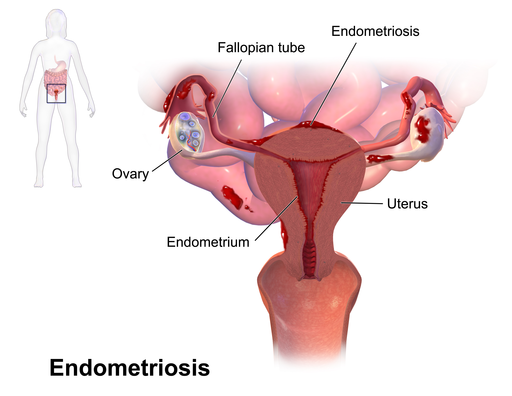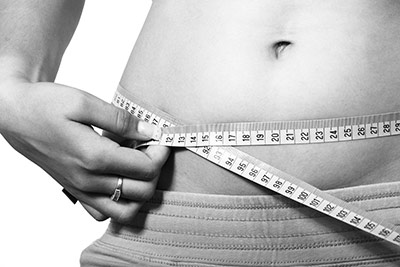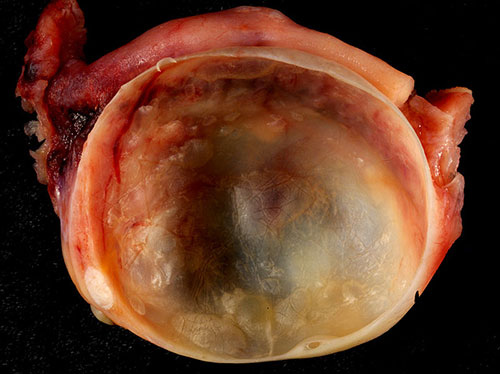Endometriosis is a condition in which uterine tissues grow in areas outside the uterus, such as the ovaries and Fallopian tubes. This causes the patient to experience high amounts pain, particularly in the pelvis and abdomen.
Pain can also manifest in dysmenorrhea, dyspareunia (pain during sexual intercourse), and dysuria (pain during urination along with more urgent and frequent voiding). Other symptoms might also be present, such as low-grade fevers, constipation, diarrhea, nausea, vomiting, and chronic fatigue.
No one really knows what causes endometriosis, but several factors can increase a woman’s risk of developing this health condition. These include genetics and exposure to environmental toxins. As of 2015, the condition has affected 10.8 million women, which translates to around six to eight percent of the female population.
If you have been diagnosed with endometriosis, read this guide to learn more about this health condition and know what to expect.
Endometriosis and Fertility
Aside from the severe pain, another problem that endometriosis can cause is infertility. According to experts, women who have been diagnosed with this health condition have a 30 to 50 percent chance of being infertile.
Currently, the connection between endometriosis and infertility is not clearly understood, although there are some theories that the condition can affect fertility by either of these two mechanisms:
Anatomical changes
Despite growing outside the uterus, the tissue involved in endometriosis still act like uterine tissue and therefore react to hormonal changes in the body. So, when your body goes through menstruation, these tissues “bleed” as well.
But, since they are not in the uterus and are not connected to the vagina, the blood they produce has nowhere to go and instead accumulates in the local area. This activates inflammatory responses and causes the tissue in the area to adhere to each other and cause scars.
If these scars form in the ovaries and/or the Fallopian tubes, they can create blockages that prevent the egg from being released from the ovary and/or finding its way down the Fallopian tube. As a result, the egg will not be fertilized by the sperm, and conception fails to happen.
Chemical changes
Experts believe that the cysts formed by endometriosis change the chemical and hormonal composition of the peritoneal fluid (the fluid surrounds the organs in the abdominal cavity). This change in hormone levels and chemical makeup can disrupt the menstrual cycle and even prevent pregnancy from taking place.
The cysts can also release free iron, proteolytic enzymes, inflammatory molecules, and reactive oxygen species. These substances are particularly harmful to gametes and embryos, which form after the egg is fertilized by the sperm.
So, even if fertilization does happen, the developing gamete or embryo can still be destroyed by the substances mentioned above, and pregnancy will fail to take place.
Endometriosis and Pregnancy
If you have minimal or mild endometriosis, your chances of getting pregnant are almost similar to women without endometriosis. As a result, you have high chances of conceiving the natural way without any interventions needed.
However, if you have moderate to severe endometriosis, your chances of getting pregnant considerably decrease due to ways the condition affects your fertility. Your physician may recommend surgery to remove the scar tissue that is blocking your ovaries and/or Fallopian tubes, which can increase your chances of conceiving.
Take note, though, that there is no guarantee that you will get pregnant after surgery. Still, in many cases, going through this surgery is more effective in increasing pregnancy rates than drug treatments.
If you still have not conceived, you might consider in-vitro fertilization. In this process, doctors will take your eggs, combine them with your partner’s sperm in the laboratory, then implant the resulting embryos in your uterus. This bypasses the natural process of fertilization that might be hindered by scar tissue and significantly increases your chances of getting pregnant.
Once you’re pregnant, endometriosis should no longer be a problem. Many women with endometriosis report more pain during the first trimester, but the pain subsides as the pregnancy continues. Experts assume that this is due to the higher levels of progesterone, which help patients go into “remission” while they’re pregnant and get some relief from the pain.
A few studies suggest that the condition raises the risk of preterm labor, but most women who have endometriosis give birth to healthy babies. It’s still advisable to talk to your OB-GYN about this but, in general, there’s no need to worry about the condition affecting your baby’s health.
The pain from endometriosis will most likely return once you give birth and go back to your normal menstrual cycle. Some women advise that you exclusively breastfeed your baby as it can help keep the pain at bay. It’s still best to discuss this with your physician to know how you can properly manage the pain and other signs and symptoms.




